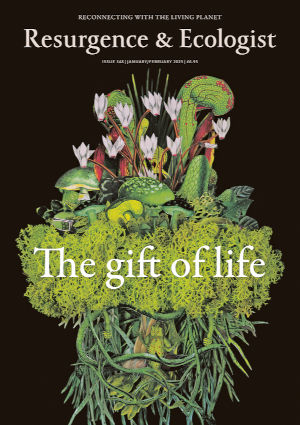Whose Planet? The Climate Justice Podcast is the latest venture from Systemic Justice founder Nani Jansen Reventlow. Systemic Justice is a Dutch NGO that works to radically transform how the law serves communities fighting for racial, social and economic justice. This podcast provides Reventlow with the perfect platform to elevate marginalised voices into the mainstream climate conversation.
This three-part series offers listeners an insightful introduction to intersectional climate justice, featuring individuals from diverse backgrounds across multiple continents who all face pressing issues of environmental injustice. Although they are among the most affected by climate change, these individuals all have one thing in common: they have historically been sidelined in climate decision-making.
Now they are fighting to change that narrative.
The first episode focuses on air pollution injustice and includes a powerful interview with Rosamund Adoo-Kissi-Debrah, whose daughter suffered and sadly died due to excessive air pollution in South London. Whilst her story is heartbreaking, the ongoing campaign by Adoo-Kissi-Debrah to raise awareness of air pollution’s dangers is inspiring. Further, what makes this episode even more compelling is that it is interwoven with an interview with Love Ssega, a musician who uses his craft to campaign for cleaner air in Lewisham. Through his single ‘Our World (Fight for Air)’ he has sparked community-wide passion for change, illustrating the power of art and culture to inspire and empower communities.
The second episode addresses rising sea levels, with one story delivering into the impact of climate on cultural heritage, highlighting Nelson’s Dockyard in Antigua, a UNESCO World Heritage site endangered by rising sea levels and intensifying storms. While efforts are under way to safeguard such cultural landmarks, the financial burden is immense and often unsustainable for smaller, low-lying nations. The urgency faced by the communities in Antigua is immense, illustrating the challenges that countries like Antigua face in protecting irreplaceable cultural assets, whilst having limited international financial support.
Reventlow’s podcast goes beyond detailing the effects of climate change. It also draws critical connections between climate justice and historical inequities, and how solutions to climate change, such as renewable energy projects, can in fact mirror the same patterns of greed that led to the climate crisis in the first place.
In the final episode, Reventlow interviews members of the Indigenous Sámi community, who won a legal challenge fighting an onshore wind project in Norway that was seriously impacting their traditional reindeer herding practices.
Whose Planet? The Climate Justice Podcast is both informative and a call to action, advocating for an equitable climate response that considers the rights and voices of the most impacted people. Produced by Tortoise Media, this series offers a compelling glimpse at the front lines of climate justice.
Whose Planet? The Climate Justice Podcast by Nani Jansen Reventlow.







